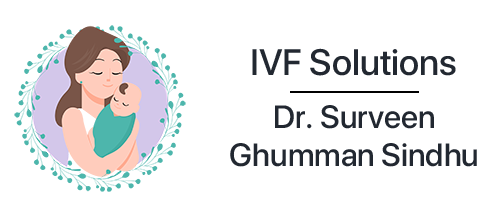There are specific indications for IVF and it should only be done if these are fulfilled. Below are the indications for IVF
1. Male Factor Infertility
2. Absent or Damaged Fallopian Tubes
3. Endometriosis
4. Unexplained Infertility
5. Recurrent Intrauterine Insemination Failure
6. Tubal and Pelvic Adhesions
7. Poor ovarian reserve
8. Preimplantation Genetic Diagnosis (PGD)
9. Premature menopause – Donor oocytes
10. Uterine pathology requiring surrogacy
However, one must consider many factors like – Age, duration and etiology of infertility, extent of pathology, ovarian reserve, and previous treatment. If age is more, ovarian reserve is less or it is a long standing infertility then one must go in for IVF treatment earlier and not waste too much time with other treatment. If intrauterine insemination (IUI) has been tried 3-4 times and has not been successful the success rates for subsequent IUI’s are not more than 7%. It is better to go for IVF which has a higher success rate.
If there is a tubal blockage in one tube it shows that a pelvic factor already exists and results of IUI when follicle is made on side of patent tube may still be poor. Besides that it is not only the patency of the tube which is important but also that it should be functional. Hence, in these cases one should move earlier to IVF. Similarly, if cause of infertility is endometriosis, the success rates of IUI will be lower than those of unexplained infertility. Hence one should move earlier from IUI to IVF. In case AMH is falling it is better to give her the best chance in the shortest period possible and that means IVF.
In male factor infertility a total count of less than 10 million or a motility <40% will indicate a IVF. If total motile count is the less than 1 million or morphology is less than 4 % IVF with intracytoplasmic sperm injection is indicated.
In cases where there are recurrent abortions due to genetic causes and in parents who have a known genetic disease one can have the option of going in for a preimplantation genetic diagnosis (PGD) where the embryo is biopsied with one cell being taken out and only the normal embryos are transferred. This is possible only if IVF is done. In case, a woman has undergone premature menopause or if there is a very poor ovarian reserve, she cannot use her own eggs. Eggs are taken from a younger donor fertilized with husband’s sperms and transferred in the woman’s uterus. Similarly in case a woman is unable to bear a pregnancy due to medical reasons or because uterus is removed or diseased IVF can be done with her eggs and her husbands sperms and the embryo transferred into the uterus of the surrogate. Hence IVF is a boon for those who have lost all hope.
Dr Surveen Ghumman Sindhu MD (Obst & Gyne), FICOG, FICMCH
Director
MAX IVF & Reproductive Medicine, Department of Gynecology
MAX Superspeciality Hospitals, Panchsheel, Saket, Vaishali & Patparganj, Delhi.

